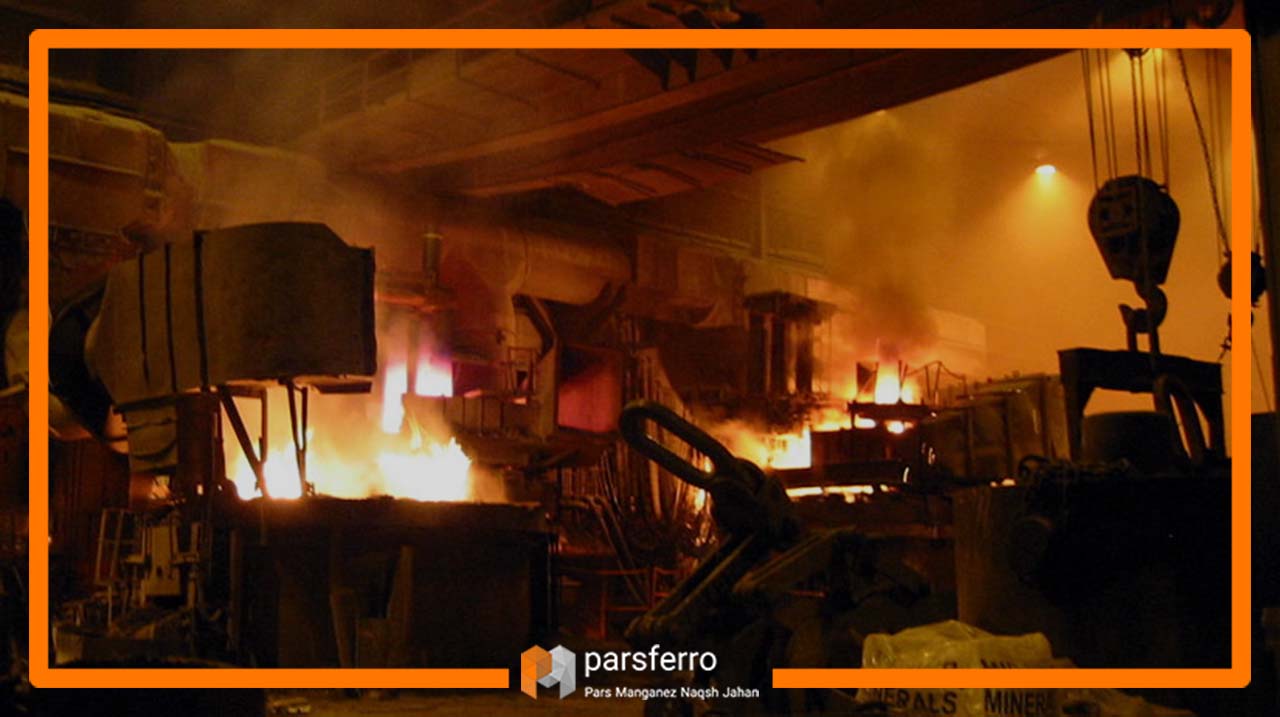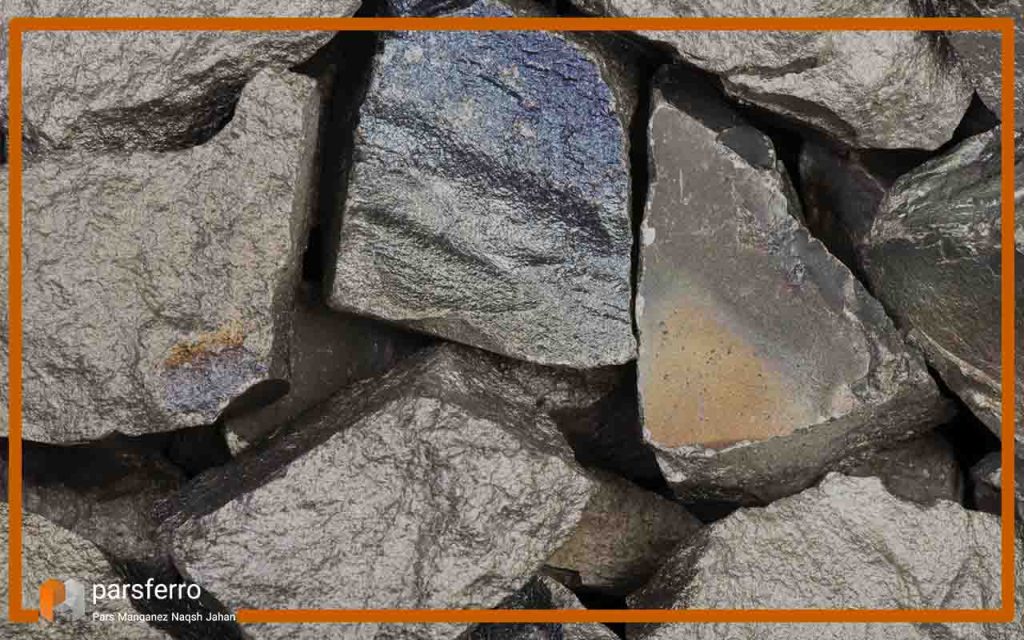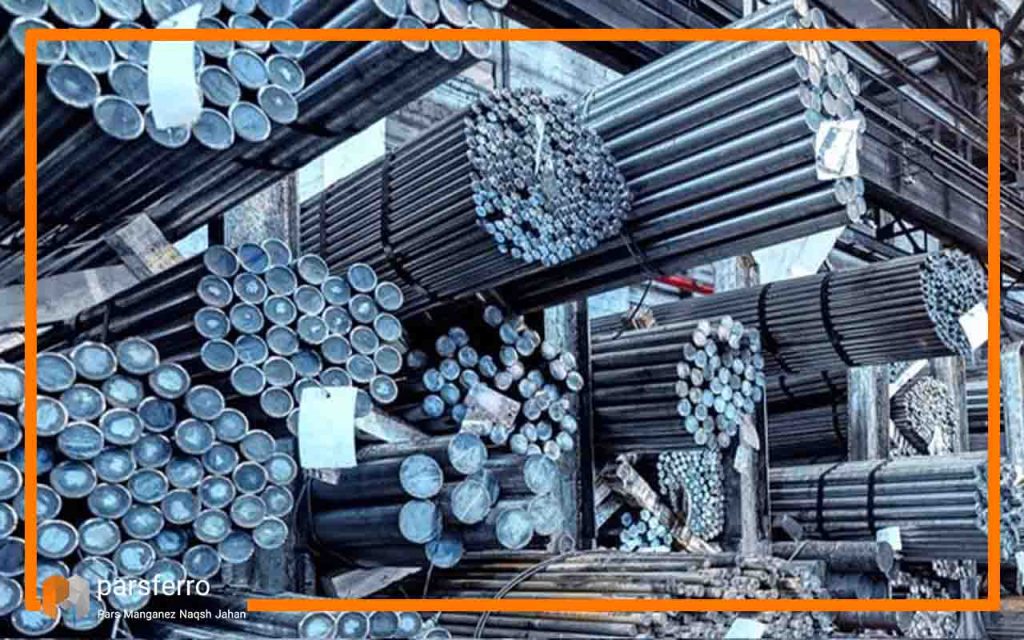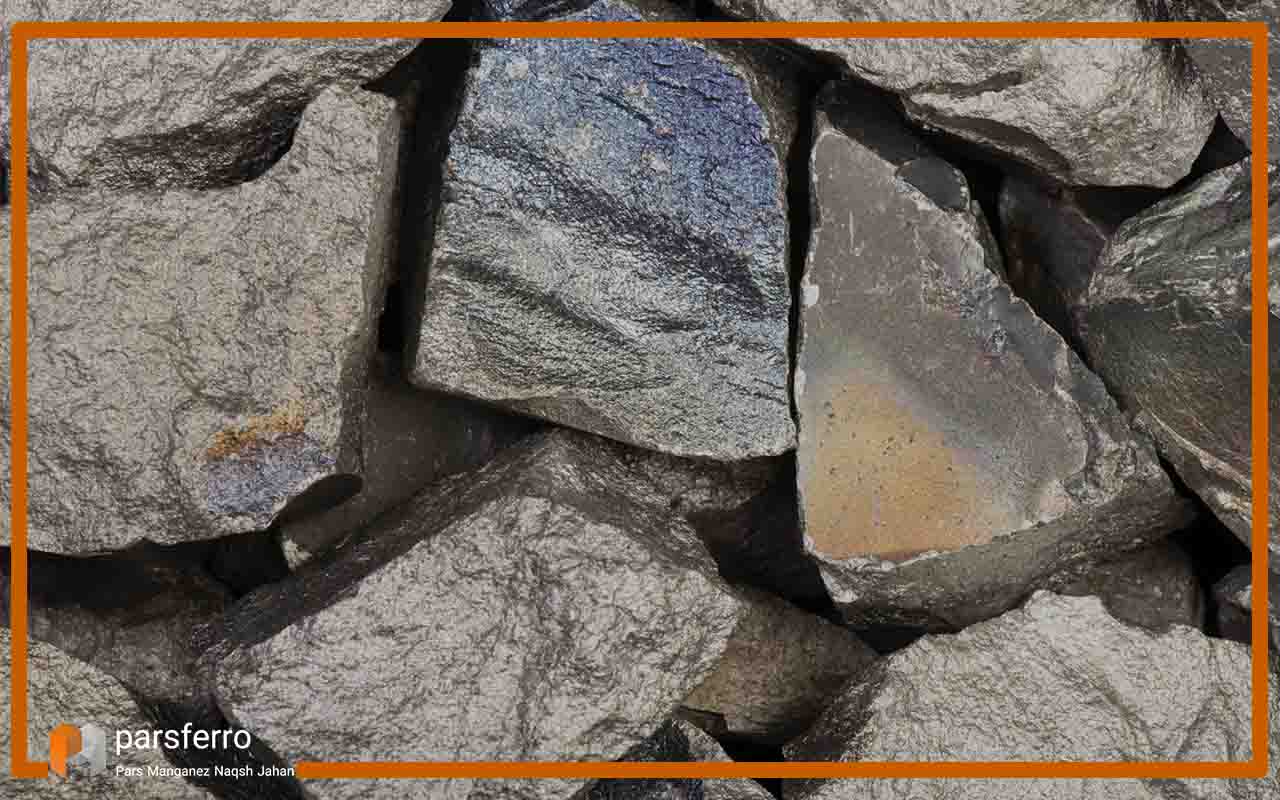In the steel production, ferromanganese—often abbreviated as FeMn—plays key role. It serves as a crucial component, facilitating functions such as deoxidization, desulfurization, degassing, and alloy enhancement. The significance of ferromanganese comes from its distinct physical and chemical properties and promotes its widespread use, which is in this article we will discuss more about ferromanganese uses.
Pars Manganez Naqsh Jahan is a leading supplier of ferroalloys, specializing in ferromanganese and ferrosilicon for the steel production industry. Committed to delivering high-quality products, our company ensures the production of superior-grade steel with enhanced mechanical and chemical properties. With a focus on quality assurance, we strive to meet the diverse needs of our clients, contributing significantly to the excellence of steel manufacturing. For more information about our products and services, please contact us via email..
read more: ferro silicon specification
ferromanganese Applications in metallurgy
This alloy is primarily composed of manganese and iron, and it is utilized in various applications due to its unique properties. Here are some key aspects of ferromanganese uses in metallurgy.
Alloy Manufacturing
Ferromanganese uses in steel production, stainless steel manufacturing, and the production of specialized alloys:
Steel Production: Ferromanganese is a key ingredient in the production of steel. It is added to molten iron during the steelmaking process to enhance the properties of the final product. The addition of ferromanganese improves the hardness, toughness, and strength of steel, making it suitable for a wide range of industrial applications.
Stainless Steel: In the manufacturing of stainless steel, ferromanganese is often used to introduce manganese into the alloy. Stainless steel requires specific alloying elements to resist corrosion and maintain its strength at high temperatures. Ferromanganese contributes to the corrosion resistance and overall durability of stainless steel.
read more: What is ferromanganese alloy?

Specialized Alloys:Ferromanganese plays a crucial role in crafting specialized alloys like high-strength low-alloy (HSLA) steels. Engineers design these alloys to exhibit distinct mechanical properties, such as heightened strength and enhanced toughness, rendering them well-suited for diverse applications in construction, automotive manufacturing, and other industries. Properties and Benefits
Properties and Benefits
ferromanganese’s significance in enhancing the mechanical and chemical properties of metals for diverse industrial applications:
Deoxidizing Agent: Ferromanganese acts as a deoxidizing agent in the steelmaking process. By removing oxygen from the molten steel, it helps prevent the formation of undesirable oxides that can negatively impact the quality of the final product.
Manganese Content: Manganese is an essential element for steel production, and ferromanganese serves as a convenient and effective way to introduce controlled amounts of manganese into the steel alloy. Manganese enhances the hardenability and wear resistance of steel.
Temperature Stability: Ferromanganese contributes to the temperature stability of alloys, making them suitable for use in various temperature ranges without sacrificing their mechanical properties.
read more: what is ferro silicon used for
Casting and Foundry Applications
Foundries utilize ferromanganese in the production of castings, where alloying elements are incorporated into molten metal. Engineers add ferromanganese in a controlled manner to attain the desired alloy composition. It ensures meeting specific performance requirements for the final cast product. In foundry applications, ferromanganese helps achieve the desired balance of ductility and toughness in cast metals. This ensures that the final product meets the required standards for its intended use.

Another ferromanganese uses
ferromanganese uses, through its influence on the properties of steel, plays a pivotal role in shaping the strength, durability, and corrosion resistance of materials used in construction, infrastructure, and industrial applications
Construction
Ferromanganese is a critical component in the construction industry, particularly in the production of steel reinforcement bars (rebar) and structural steel. The alloy’s inclusion in rebar strengthens concrete structures, preventing cracks and enhancing the overall stability of buildings. In structural steel, ferromanganese contributes to increased strength and durability, making it an indispensable material for various construction components. Additionally, ferromanganese plays a pivotal role in welding applications, ensuring the quality and strength of welded joints, which are fundamental in securely joining structural elements.
Infrastructure
In the infrastructure development, ferromanganese is widely employed in the construction of bridges, highways, and railway tracks. Its presence in steel contributes to the resilience, hardness, and wear resistance of structures like steel bridges and railway rails, ensuring longevity and safety. The alloy is also essential in the manufacturing of steel pipes for pipelines, offering durability and strength crucial for reliable infrastructure. Whether in the form of steel reinforcement or structural components, ferromanganese is integral to the construction and maintenance of robust infrastructure systems.
Industrial Materials
Ferromanganese uses finds diverse applications in industrial materials, contributing to the fabrication of machine parts, industrial equipment, storage tanks, and containers. In machine manufacturing, the alloy’s properties enhance the durability and strength of components, ensuring reliable performance in industrial settings. Ferromanganese is instrumental in the construction of storage tanks and containers, where its corrosion-resistant qualities and strength are paramount. Moreover, the alloy is a key element in the construction of large industrial structures, such as manufacturing plants and warehouses, where its contributions to structural integrity are vital for the overall stability and longevity of industrial facilities.

Production Sector of ferromanganese
The production sector of ferromanganese is a critical component of the metallurgical industry. The process involves smelting manganese and iron ores, typically in blast furnaces or electric arc furnaces. Raw materials include manganese ore and iron ore, with the addition of coke or other carbon sources. The alloy’s composition is carefully controlled to meet specific requirements, often including the addition of elements like silicon and carbon. The main application is in steel production, where ferromanganese enhances the strength and durability of steel. The industry faces environmental challenges, and efforts are made to optimize processes and reduce emissions. Overall, the production of ferromanganese serves the demand of various industries, particularly in steel and manufacturing as we mentioned before.
Conclusion
Ferromanganese is a crucial element in steel production, contributing to high-quality steel with enhanced properties. Its versatility extends to stainless steel and specialized alloys, serving as a deoxidizing agent and enhancing temperature stability. Beyond steel, it plays a vital role in casting, foundry applications, and construction, reinforcing structures and contributing to welding. In infrastructure development, it strengthens various components. Additionally, it is essential in industrial materials and machinery.


No comment